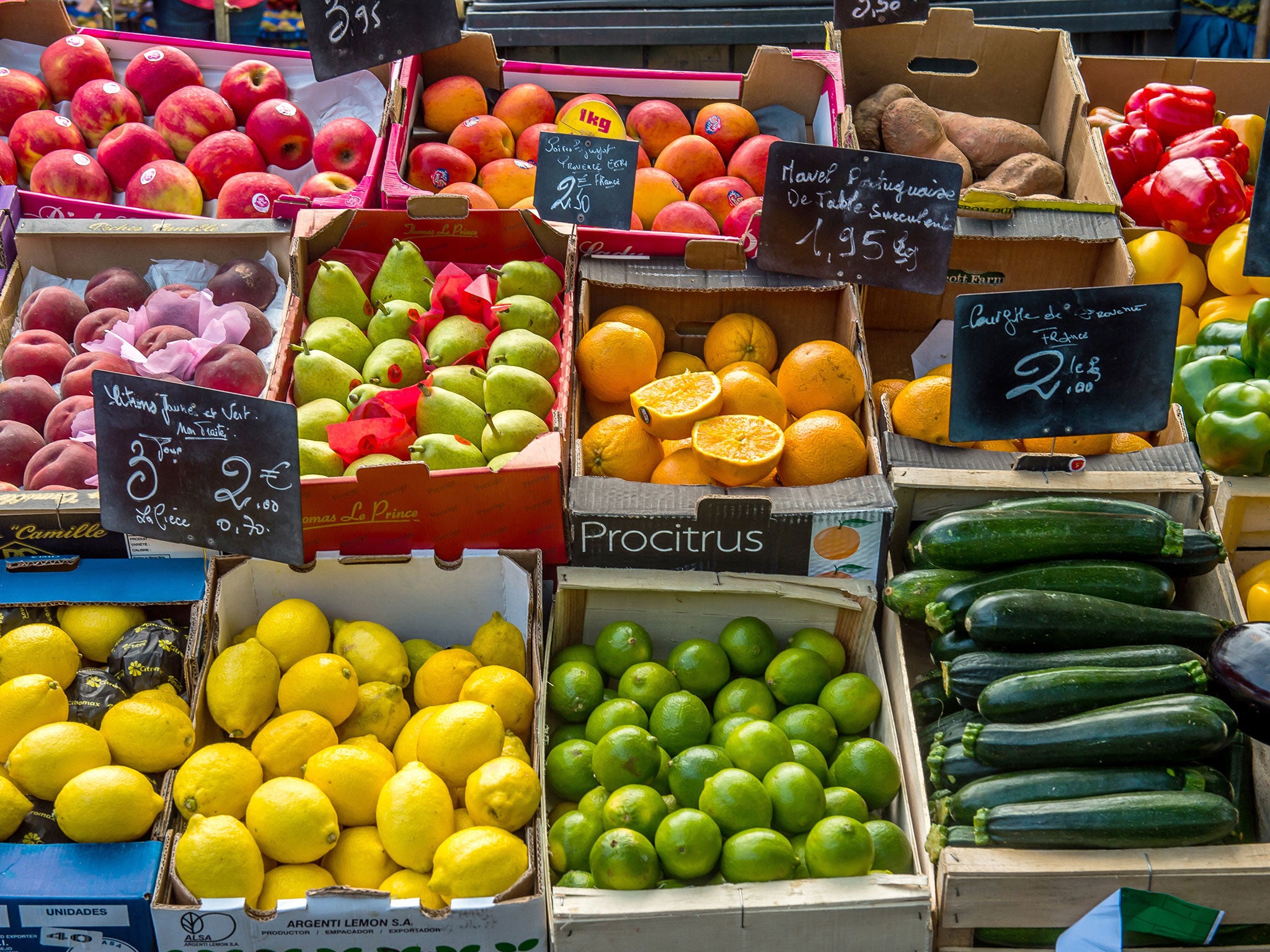Now we know that even vegetarianism is bad for the planet, it’s time you Greens embraced my diet


If you care about saving the planet, what is the best diet? For years, smug vegans and vegetarians have asserted that they are the environmental warriors doing their bit to combat climate change.
At the Paris climate conference, the Terminator, former bodybuilder and ex-California governor Arnold Schwarzenegger delivered an impassioned rant ordering us to give up meat two days a week to reduce greenhouses gases. Surely that’s a bit rich, coming from someone who bulked up on grass-fed protein for years and who starred in blockbusters which promoted gadgets and gimmickry powered by vast amounts of energy. Actually, when I interviewed Arnie years ago, he was addicted to doughnuts rather than ribs, and we stopped at Greggs so he could stock up on a bagful.
Arnie is just one of a gang of stars who “really care” about the planet. Why world leaders in Paris would take any notice of concerned crusaders such as Arnie, Robert Redford and Leonardo DiCaprio telling them how important it is to fight climate change is beyond me. After all, these stars regularly fly using private jets and own vast amounts of property, which is bound to be air conditioned.
Meat-eating has been under attack for some years – Paul McCartney and his family launched Meat Free Mondays in 2009 – but vegetarian campaigners could be fighting a losing battle. The UN Food and Agriculture organisation reckons that consumption of meat will rise by 76 per cent by 2050, as the population increases and the Third World turns to Western-style diets. What’s indisputable, though, is that meat production and consumption account for between 28 per cent and 50 per cent of all the greenhouses gases generated, and a recent report from the think-tank Chatham House calls for a 15 per cent meat tax to try to reduce the amount we eat.
Sadly, no solution is that simple. Now, a bunch of scientists in the US claim that eating healthy greens is just as bad for the planet. According to a study conducted by the Carnegie Mellon University (which considered the impact per calorie of food in terms of energy costs, transportation, water use and carbon emissions), bingeing on lettuce is more than three times as bad for the planet as gorging on bacon. A spokesman for the researchers claimed that vegetables “require more resources per calorie than you would think – aubergines, celery and cucumbers look particularly bad when compared to pork or chicken”. The report’s authors agree that we need to eat less meat, but we mustn’t delude ourselves that eating a healthy diet means we are saving the planet.
I don’t know about you, but after reading this, I resolved to ignore the advice of Arnie and the lettuce-bashers and stick to my personal 5:2 diet. As for consuming less and fasting, telly science guru Michael Mosley will probably tell us next week that there’s yet another way to live longer, reduce emissions and eliminate constipation, dementia and arthritis.
My 5:2 regime means all the conflicting arguments are covered in one week. For five days I eat a veggie breakfast of fruit, nuts and seeds followed by wholemeal heavy bread, topped with mashed avocado or raw tomato. On Saturday and Sunday, I eat a full English breakfast: bacon, egg, mushrooms and toast with marmalade. I always eat meat on Sundays and fish on Fridays – it’s part of my DNA. I lead a guilt-free existence when it comes to diet, and that’s without resorting to Gwyneth Paltrow for advice.
Taxing meat – particularly in countries such as the US, where steak is synonymous with masculinity – has as much chance of becoming law as gun control; in other words, zero.
I’m writing this in Australia, which does have strict gun control laws, but where the words barbie and beef are a central part of the culture. Australia is a conflicted country when it comes to diet. There’s a strong alternative lifestyle culture, with passionate protection of the beautiful environment and a huge organic movement, alongside vast mining interests and huge meat production. But the lettuce I buy at the farmers’ market will have travelled less than 10 miles; it will be grown by people who use solar power, recycle and who aren’t wearing shoes. It makes me feel very virtuous, but I’m not sure how I can replicate this back in Blighty.
Meanwhile, Christmas is the time of feasting, and even Arnie will not deter me from roasting a turkey and a ham. I’ll just have to go through January redressing the balance on my carbon balance sheet.
Charles and Camilla beat politicians in the card game
Here in Australia, just like the UK, Christmas cards are dying out. One of the reasons, apart from the cost of postage and the rise of the e-card, is the tropical climate and the humidity in high summer. After a couple of days, most cards flop over and look pathetic. Decorations are minimal too: Blu-tack loses its grip and the sun is too bright to see the fairy lights during the day.
For years, I made Christmas cards, choosing amusing images from holidays or walks. Last year, we put together personalised calendars, but this year I have failed the test entirely.
Prince Charles, on the other hand, has scored a rare PR triumph with his 2015 Christmas card, which features an informal snap of him and Camilla actually hugging. The image, taken on their Scottish holiday last summer, has banished all moaning about the heir to the throne and substituted a cosy regal glow. Even better, Charles and his wife do not employ the horribly politically correct phrase “happy holidays”, but opted for the traditional “Happy Christmas”.
I loathe the way Christmas has been turned into just another holiday, a winter version of the summer break – we are celebrating the birth of Christ, after all. I’m afraid Charles has trumped Cameron and Corbyn in the card stakes this year.
Stop patronising the elderly and help to integrate them
The Government’s health advisory body Nice says loneliness is a serious health issue and wants councils and the NHS to do better at informing older people what activities exist in their area and how they can join in, from singing in a choir to reading to schoolchildren. The advice follows research from the University of Chicago indicating that loneliness could be twice as likely as obesity to lead to an earlier death.
A million people in the UK say they are lonely, up to 15 per cent of those over 65. Those who have recently lost a partner are particularly vulnerable. While I applaud the intentions behind the Nice guidance, the reality of council cuts means there will be no consistent strategy throughout the UK.
The single biggest aid to combat isolation is use of the internet and communication tools such as Skype and Snapchat. Where are the Saga-sponsored laptops and a nationwide squad of young people teaching the old about the internet as part of their school studies? As for joining choirs and reading to children, where is the funding for rural transport? Each council should appoint a single executive whose task it is to enable older people to participate in activities and events that already exist. It would reduce health and care costs, because independence goes hand in hand with good mental health.
My idea of hell would be singing in a choir, but community yoga in the village hall is another matter. Above all, let’s not patronise older people – they don’t need “special” activities, but the means to join in.



Join our commenting forum
Join thought-provoking conversations, follow other Independent readers and see their replies